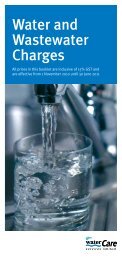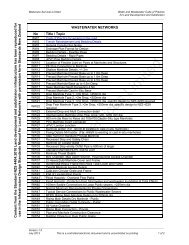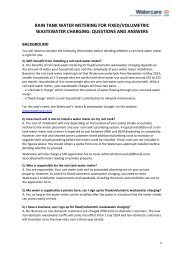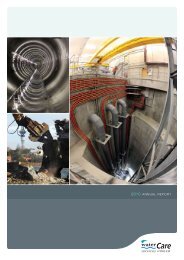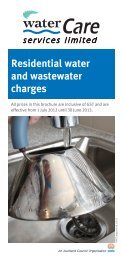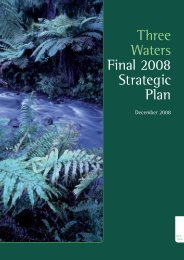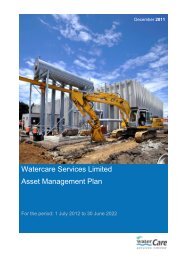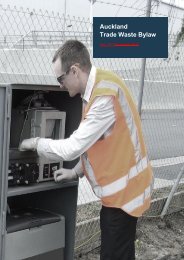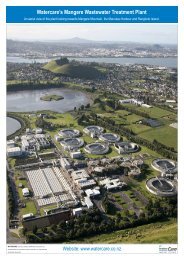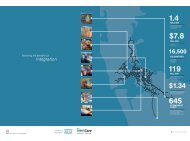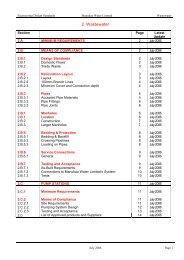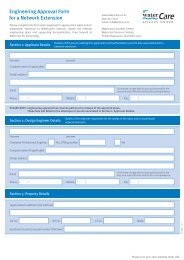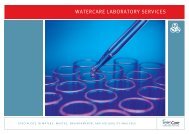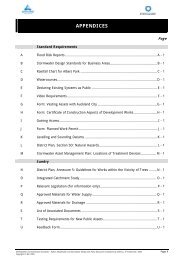Annual Report 2011 - Watercare
Annual Report 2011 - Watercare
Annual Report 2011 - Watercare
Create successful ePaper yourself
Turn your PDF publications into a flip-book with our unique Google optimized e-Paper software.
<strong>Watercare</strong> Services Limited<br />
<strong>2011</strong> ANNUAL REPORT<br />
<strong>Watercare</strong><br />
at work<br />
Ambitious demand-management plan takes shape<br />
<strong>Watercare</strong> is implementing an ambitious water demandmanagement<br />
plan that aims to reduce gross per capita<br />
consumption by 15 per cent by 2025.<br />
Adopted in June <strong>2011</strong>, the plan brings together previous reviews<br />
and demand-management approaches used in Auckland and<br />
other parts of New Zealand, as well as best practice from overseas.<br />
“It involves reinforcing positive messages about water use<br />
as part of our existing Adopt A Stream education programme<br />
– which thousands of pupils participate in each year.<br />
“We plan to work with the Ministry of Education and schools<br />
to help them reduce the volume of water used for things such<br />
as irrigation and toilet flushing, as well as to detect leaks.”<br />
Water Resources Manager Dr Deborah Lind says the total<br />
demand for water in Auckland continues to increase as a result of<br />
population growth.<br />
“While individual consumption has reduced significantly over the<br />
last 30 years, the overall demand for water has increased as our<br />
population has doubled.<br />
“Managing our water demand will not offset the entire impact of<br />
population growth. However, we do expect it will help to defer the<br />
need for new water sources and related infrastructure. This will<br />
assist in reducing our costs and keeping water prices low, while<br />
also reducing impacts on the environment.”<br />
The plan features a ‘tool box’ of initiatives covering the six Es<br />
of water efficiency and demand-management approaches:<br />
engage, educate, encourage, engineer, enact and economic.<br />
Deborah explains that working with schools is one of the<br />
initiatives:<br />
<strong>Watercare</strong> also plans to continue working with Housing<br />
New Zealand, which owns 30,000 homes in Auckland,<br />
to ensure water-efficient appliances are included as part of<br />
refurbishment work, and to ensure leaks are detected and<br />
repaired in a timely manner.<br />
Other approaches include minimising leaks in the network and<br />
water used for operational purposes, and working with Auckland<br />
Council to find ways to reduce its demand for water.<br />
“Managing our water demand will not offset<br />
the entire impact of population growth. However,<br />
we do expect it will help to defer the need for<br />
new water sources and related infrastructure.”<br />
Effective asset management<br />
Data Technician Sarah Muir and Water Resources Manager Dr Deborah Lind<br />
look at rain level data for Lower Nihotupu Dam.<br />
PAGE 53<br />
Return to Contents page




